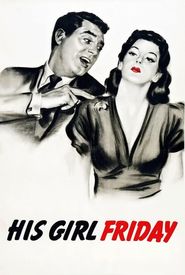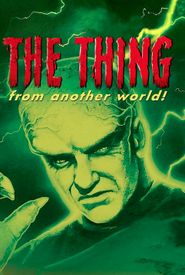Charles Lederer, a celebrated American screenwriter and film director, entered the world on December 31, 1906, in New York, within a prestigious theatrical family, whose family tree was deeply rooted in the world of entertainment.
Notably, Lederer's extraordinary intellect and precocity led him to take the unprecedented step of enrolling in college at the remarkably young age of 13, a testament to his remarkable aptitude and academic prowess. However, his trajectory took a dramatic turn when he decided to forgo further academic pursuits to pursue a career in journalism with the esteemed Hearst's newspapers, marking the beginning of a path that would ultimately lay the groundwork for his future triumphs in the film industry.
From the mid-1940s to the early 1950s, Lederer's remarkable screenwriting skills earned him widespread recognition, as his clever and satirical scripts frequently delved into the corrupting effects of affluence and authority.
As a master of comedic writing, his work was widely praised, and he, alongside esteemed colleagues Ben Hecht and Herman Mankiewicz, made a substantial contribution to the development of the screwball comedy genre.
Throughout his career, Lederer's wit and humor consistently captivated audiences, and his influence on the world of comedy remains a testament to his enduring talent and dedication to his craft.
Ben Hecht's protégé, Charles Lederer, left an indelible mark on the world of cinema, with a body of work that spanned decades and showcased his remarkable versatility as a screenwriter. Among his most illustrious credits are the iconic screenplays for The Front Page, a 1931 film that set the tone for the screwball comedy genre, and His Girl Friday, a 1940 masterpiece that cemented his reputation as a master of wit and wordplay.
Lederer's impressive résumé also boasts the 1953 musical extravaganza Gentlemen Prefer Blondes, a Technicolor spectacle that showcased his ability to balance humor and heart. His work on The Spirit of St. Louis, a 1957 biographical drama starring Jimmy Stewart, demonstrated his capacity for crafting nuanced, historically accurate narratives.
The 1960 heist film Ocean's 11, starring the Rat Pack, showcased Lederer's skill in crafting clever, fast-paced dialogue and his ability to balance humor and tension. His final notable credit, Mutiny on the Bounty, a 1962 epic drama starring Marlon Brando, underscored his talent for crafting sweeping, cinematic stories that captivated audiences worldwide. Throughout his career, Lederer's dedication to his craft and his remarkable talent for storytelling left an enduring legacy in the world of cinema.
Not only did Lederer leave an indelible mark on the cinematic world, but he also made a significant impact on the world of live theater, specifically on the esteemed Broadway stage.
He co-authored the book for the 1954 musical production of Kismet, which garnered widespread acclaim and recognition, ultimately going on to win not one, not two, but three prestigious Tony Awards.
Noted screenwriter and playwright, Lederer, forged a career marked by collaborative efforts with some of the most illustrious writers and directors of his era, including the likes of Ben Hecht, Herman Mankiewicz, and James Cagney, the latter of whom he had the opportunity to work alongside in a notable capacity.
One of the most notable projects Lederer was involved in was the 1959 film adaptation of Maxwell Anderson and Rouben Mamoulian's play, Never Steal Anything Small, which starred the esteemed James Cagney and served as a testament to Lederer's remarkable ability to seamlessly transition between mediums, effortlessly adapting his work to suit the demands of the big screen.
As the curtain closed on the iconic film "The Spirit of St. Louis" in 1957, it marked the culmination of a remarkable chapter in the illustrious career of a visionary filmmaker, whose subsequent endeavors would primarily revolve around showcasing the talents of already-established stars.
However, the enduring legacy of this cinematic trailblazer as a masterful screenwriter and director continues to be honored and revered, with his innovative spirit and boundless creativity leaving an indelible mark on the world of comedy and cinema, a testament to his unparalleled influence and impact on the industry.
Despite the passage of time, the remarkable body of work crafted by this visionary continues to captivate and inspire, a lasting tribute to his tireless dedication and unwavering passion for the art of filmmaking.
---
**Biography:**
William Lederer was an American screenwriter, director, and novelist, best known for his work on the classic film "The Spirit of St. Louis" (1957). Born on February 2, 1916, in Philadelphia, Pennsylvania, Lederer began his career in the 1940s, working as a writer and director for various film studios.
Throughout his illustrious career, Lederer collaborated with some of the most prominent figures in Hollywood, including James Stewart, in the production of "The Spirit of St. Louis", a biographical drama that tells the story of Charles Lindbergh's historic solo flight across the Atlantic.
Lederer's contributions to the world of comedy and cinema have left a lasting impact, earning him a reputation as a talented and innovative filmmaker. Despite his passing in 2009, his legacy continues to be celebrated, and his work remains an integral part of American cinematic history.




















































